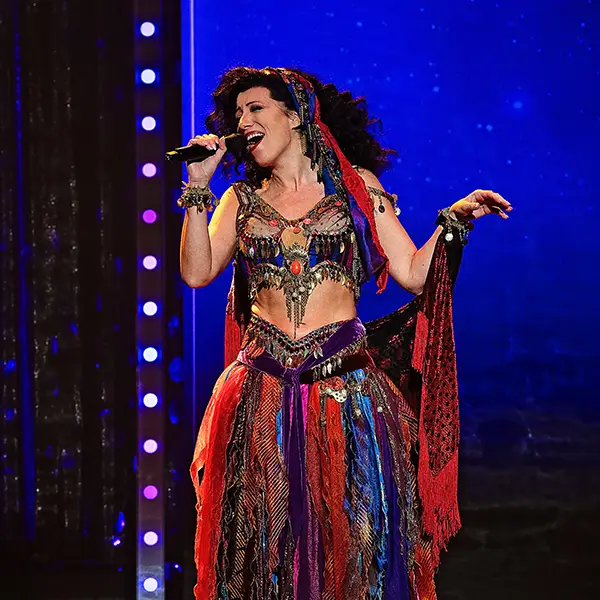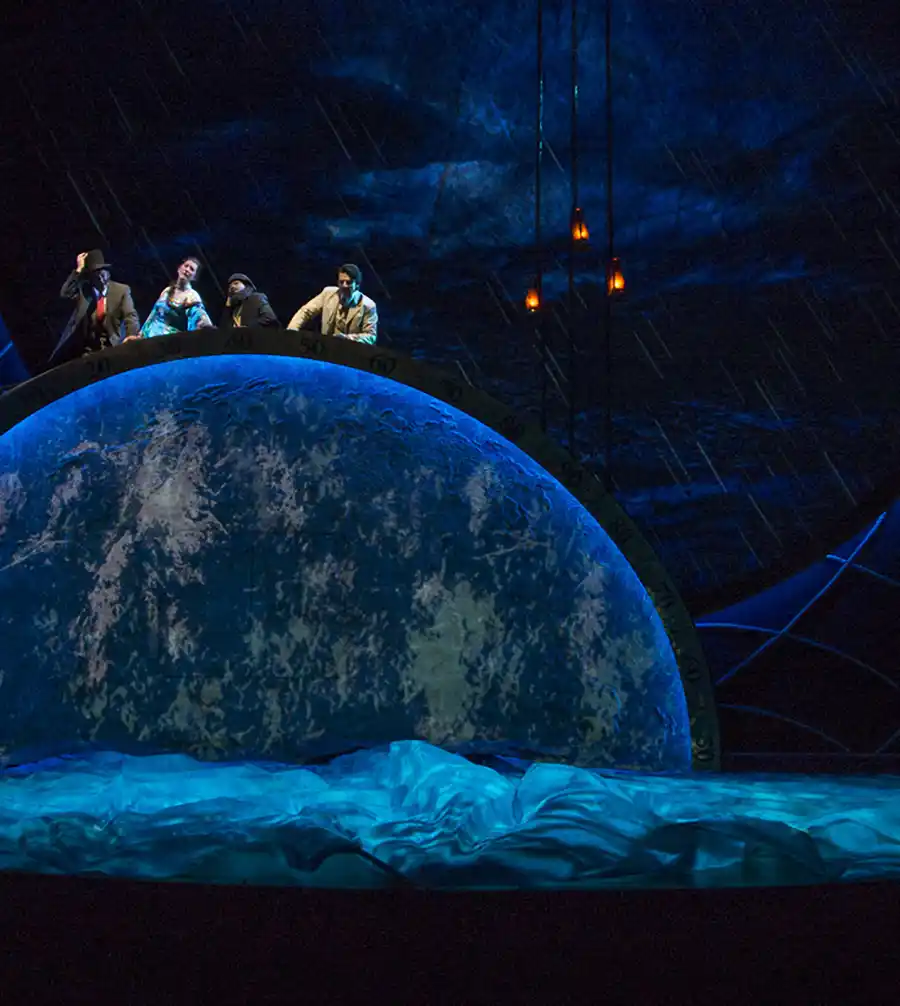
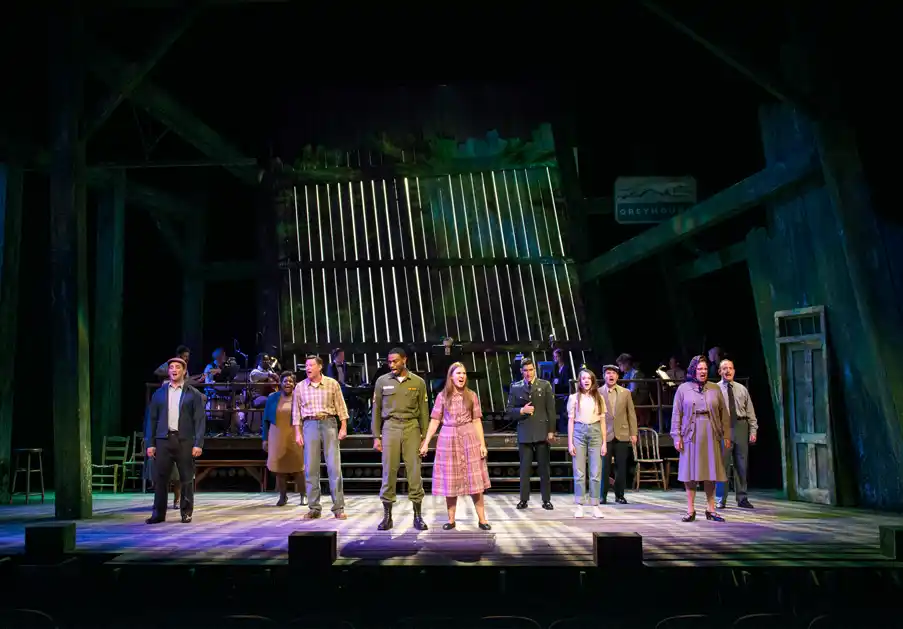
Conceptual Exploration
Ours is a challenging yet rewarding program intended to prepare MFA candidates for a career in the professional world of Theatrical Design. We believe that superlative design lies less with impressive visuals and more with interesting and unique interpretations of the plays. Therefore, a large portion of the training is focused on dramaturgical research and conceptual investigation. The student must demonstrate a thorough understanding of the source material and all its implications before proceeding three-dimensionally.
The MFA Design Program at UTK recruits students for enrollment in the Fall of even numbered years. Our next recruitment cycle will be in Fall 2024. Online application is encouraged after receiving an informal offer from the program.
Student Work
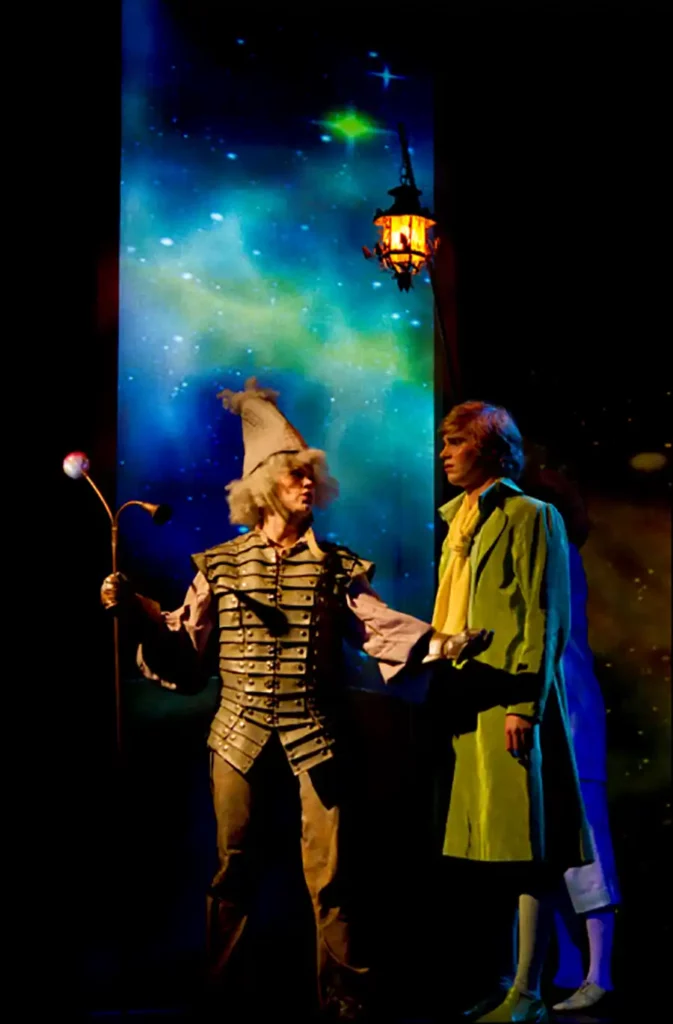

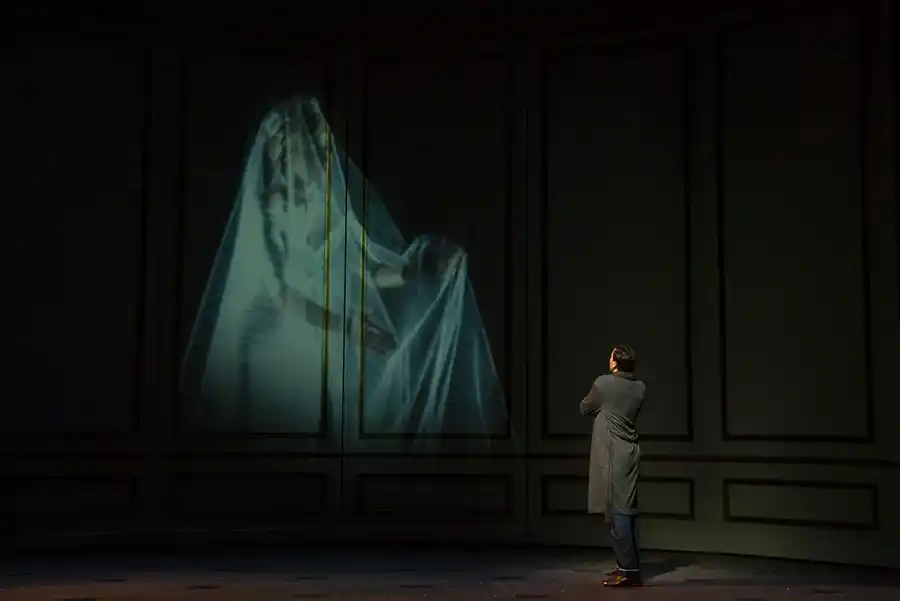
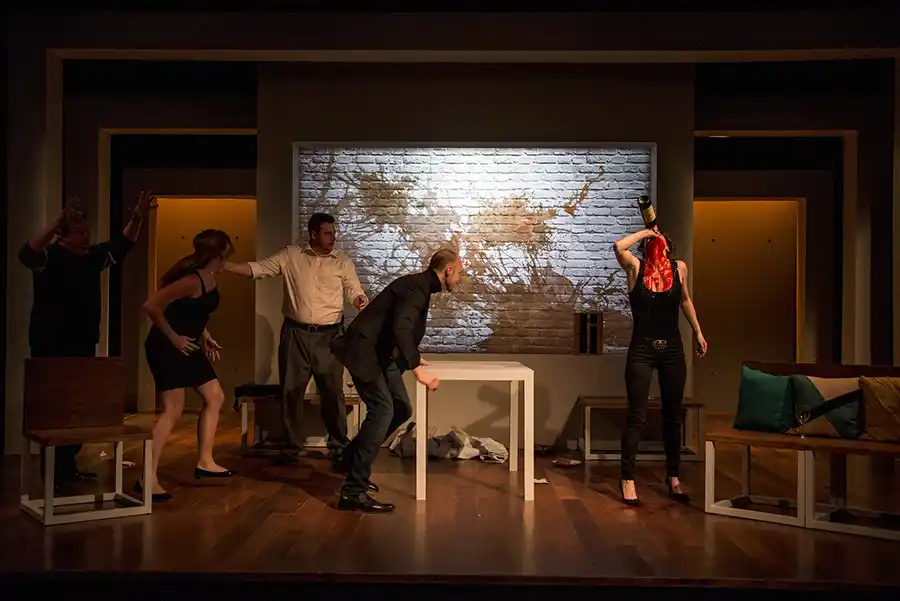


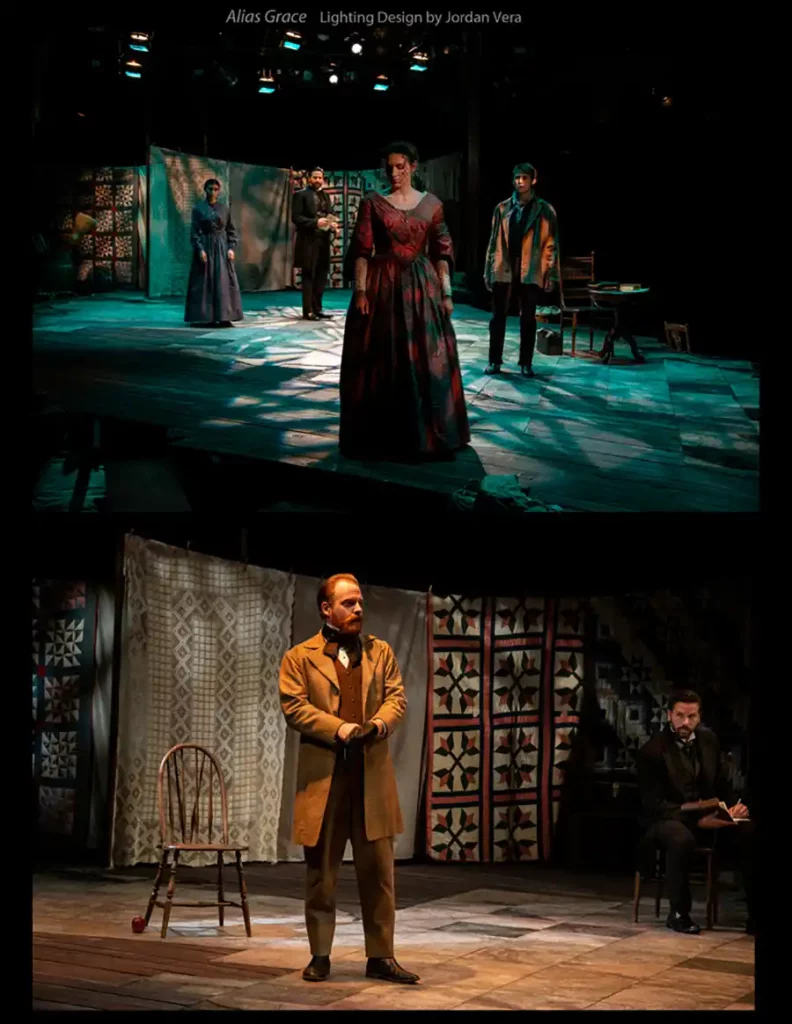
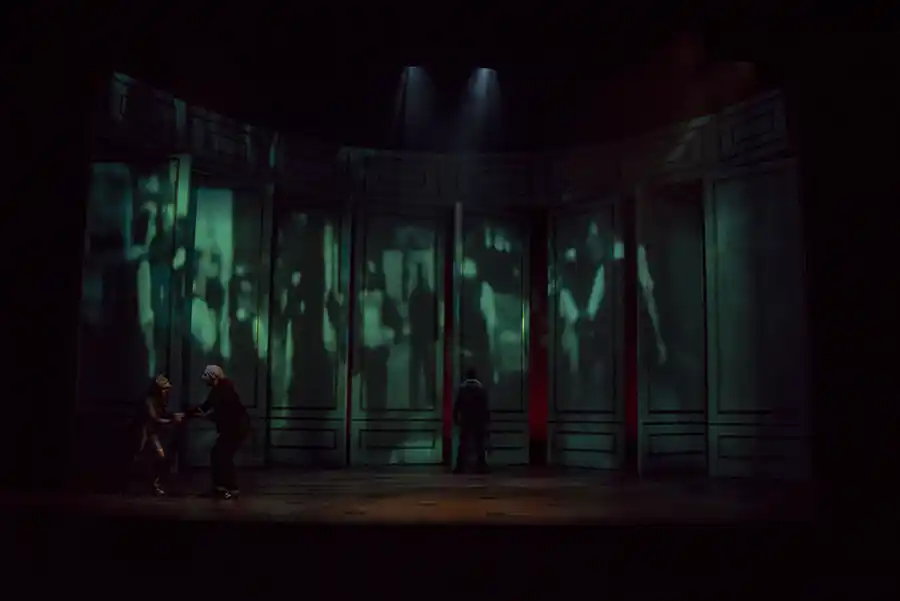
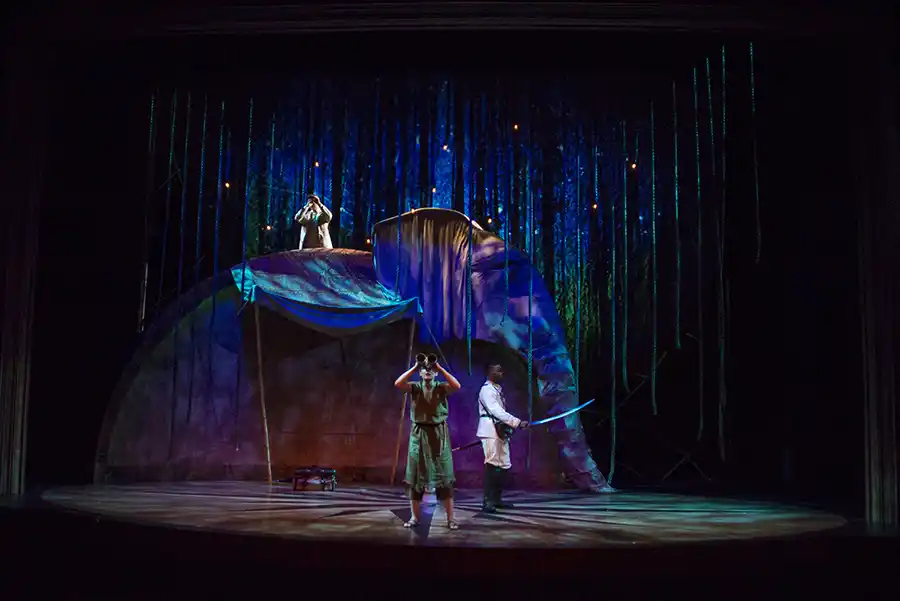
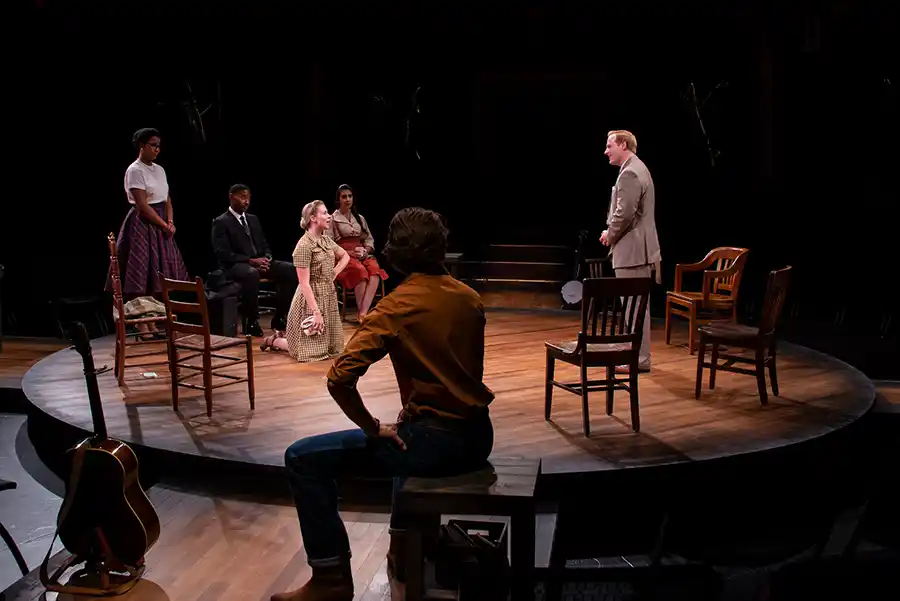
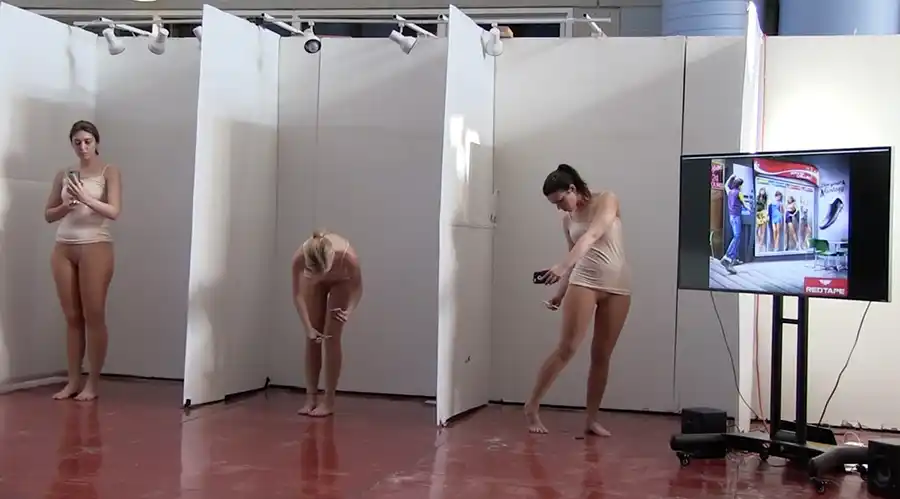
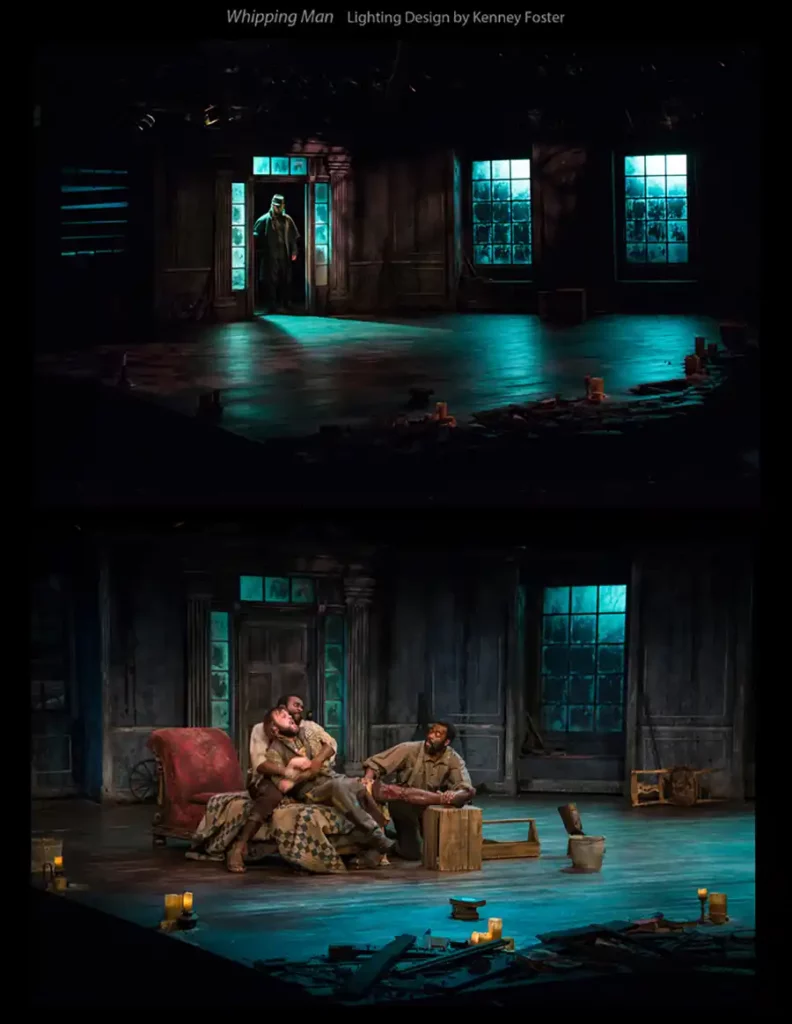
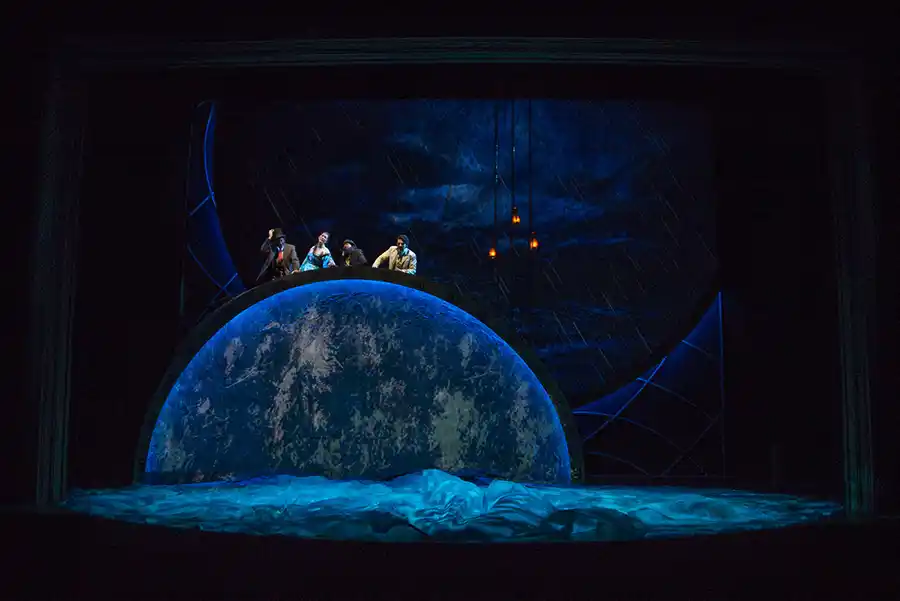
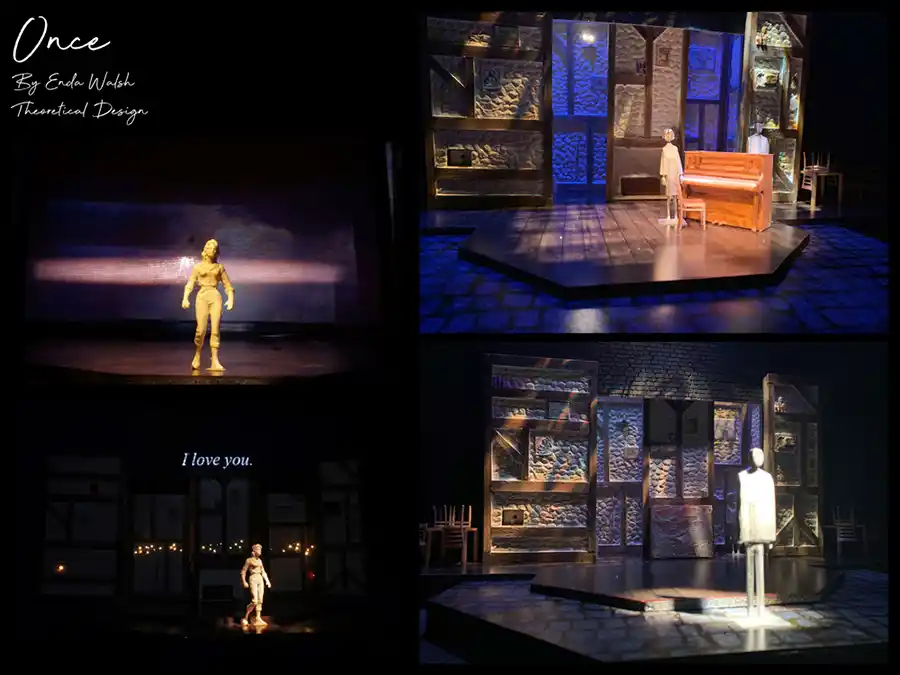
Student Awards, Scenic Design
2010s
2025
SETC Graduate Scenic Design Awards
1st Place: Scenic Design Competition: Alondra Castro, How To Defend Yourself
3rd Place: Scenic Design Competition: Leilane Bertunes, Failure: A Love Story
2018
SETC Graduate Scenic Design Awards
First Place – Katie Stepanek – Detroit ’67
Second Place – Jelena Andzic – King Charles III
Third Place – Becca Johnson – Alias Grace
Honorable Mention – Carrie Ferrelli – The Real Inspector Hound
USITT Young Designers Forum
Jelena Andzic – Invited Juried Participant
Becca Johnson – Invited Juried Participant
SETC Ready to Work Award (realized show at a professional theatre)
First Place – Katie Stepanek – Design contract at The Rose Theatre, WI
2017
World Stage Conference Design Competition – Taipei, Taiwan
First Place – Josafath Reynoso – Best Scenic Design for an emerging designer
SETC Ready to Work Award (realized show at a professional theatre)
First Place – Nevena Prodanovic – Design contract at Triad Stage, NC
SETC Graduate Scenic Design Awards
First Place – Nevena Prodanovic – Around the World in 80 Days
Second Place – Jelena Andzic – Top Girls
USITT Young Designers Forum
Nevena Prodanovic – Invited Juried Participant
NDPR National Design Portfolio Review – NYC
Nevena Prodanovic – Invited Juried Participant
2016
SETC Graduate Scenic Design Awards
Third Place – Henry Wilkinson – A Lesson Before Dying
Honorable Mention – Nevena Prodanovic – 39 Steps
2015
USITT Rose Brand Scenic Design Award (Best Graduate Scenic Design)
Winner – Josafath Reynoso – Henry V
SETC Ready to Work Award (realized show at a professional theatre)
First Place – Josafath Reynoso – Design contract at Triad Stage, NC
SETC Graduate Scenic Design Awards
Third Place – Josafath Reynoso – The Threepenny Opera
Honorable Mention – Nevena Prodanavic – Everyman
USITT Young Designers Forum
Josafath Reynoso – Invited Juried Participant
Jason Ammons – Invited Juried Participant
NDPR National Design Portfolio Review – NYC
Josafath Reynoso – Invited Juried Participant
Jason Ammons – Invited Juried Participant
2014
SETC Graduate Scenic Design Awards
First Place – Josafath Reynoso – The Hairy Ape
Third Place – Jason Ammons – The Whipping Man
2013
SETC Ready to Work Award (realized show at a professional theatre)
First Place – Libby Stadstad – Design contract at Charlotte Children’s Theatre, NC
SETC Graduate Scenic Design Awards
First Place – Libby Stadstad – Spring Awakening
USITT Young Designers Forum
Libby Stadstad – Invited Juried Participant
NDPR National Design Portfolio Review – NYC
Libby Stadstad – Invited Juried Participant
2012
SETC Graduate Scenic Design Awards
First Place – Libby Stadstad – Les Liaisons Dangereuses
2011
SETC Ready to Work Award (realized show at a professional theatre)
First Place – Kerry Chipman – Design contract at Charlotte Children’s Theatre, NC
SETC Graduate Scenic Design Awards
Second Place – Mary Pingree – Lulu
Third Place – Christian Fontaine – Electra
Honorable Mention – Kerry Chipman –The Merry Wives of Windsor
USITT Young Designers Forum
Mary Pingree – Invited Juried Participant
Kerry Chipman – Invited Juried Participant
NDPR National Design Portfolio Review – NYC
Mary Pingree – Invited Juried Participant
Kerry Chipman – Invited Juried Participant
2010
SETC Graduate Scenic Design Awards
First Place – Kerry Chipman – Othello
Third Place – Mary Pingree – Oedipus
2000s
2009
SETC Graduate Scenic Design Awards
First Place – Mary Pingree – The Secret Rapture
Third Place – Nate Sinnott – The Triumph of Love
USITT Young Designers Forum
Nate Sinnott – Invited Juried Participant
Kerry Chipman – Invited Juried Participant
2008
SETC Graduate Scenic Design Awards
First Place – Nate Sinnott – Richard III
Third Place – Morgan Matens – Las Meninas
2007
SETC Graduate Scenic Design Awards
First Place – Nate Sinnott – Richard III
Third Place – Morgan Matens – Las Meninas
How to Apply for Your MFA in Scenic Design
Step 1
Inform Head of Scenic Design, Kristen Martino, by email of your interest in applying to the program. An interview and portfolio review will be scheduled. These are required before completing the following steps for admission.
Step 2
In order to be considered for admission, all applicants must:
- Complete the Graduate School Application
- Pay the $60 application fee by credit card or electronic check.
- Upload/Enter the following materials into the Graduate School Application:
- Unofficial transcripts of all prior Undergraduate and Graduate coursework and degree confirmations
- A professional resume.
- A brief essay (2 pages maximum) about your commitment to a life in art, your interest in training, and your creative and career interests.
- Two letters of recommendation.
- Note: GRE exam is not required.
- An interview/portfolio review. Please contact the major advisor in your area of concentration to arrange the interview/portfolio review. (Step 1, above.)
Applicants whose native language is not English must:
- Submit official TOEFL scores directly from ETS to University of Tennessee, 1843, or Submit official IELTS scores directly from IELTS administrator to the Office of Graduate Admissions
Notes
- The MFA Design Program at UTK recruits students for enrollment in the Fall of even numbered years. Our next recruitment cycle will be for the Fall of 2026. Online application is encouraged after receiving an informal offer from the program.
- DO NOT SUBMIT TRANSCRIPTS OR ANY OTHER MATERIAL BY POSTAL MAIL UNLESS REQUESTED TO DO SO. THIS WILL DELAY PROCESSING YOUR APPLICATION.
- For information regarding specific Department of Theatre application materials, or for more information about our Department, please email Director of Graduate Studies, Dr. Gina Di Salvo.
Funding
All MFA in Theatre candidates at UTK receive exceptional financial support. All MFA students in both Acting and Design/Technology receive full tuition waivers plus Graduate Teaching Assistantship (GTA) stipends throughout their training. All receive virtually equal stipends, with amounts varying only slightly according to differences in funding sources.
We are proud of the funding we offer graduates to enable them to focus on their training, and we believe that equal support creates the best basis for collaboration and artistic growth.
The most recent funding per student per year is approximately:
- Out-of-State Tuition Remission: An approximate value of $31,978 per year
- Graduate Teaching Assistantships: Approximately $26,000 per year
(9-month assistantships disbursed over 12 months) - Student Travel: Up to $1500 per year possible; allocated by faculty at their discretion.
- Average Additional Scholarships: $1000-$1200 per year in 2nd and 3rd Years
- Health Insurance: All UTK Theatre MFA students are covered under UTK health insurance at no additional cost.
- Approximate Total Funding Per Year: $51,000
- Approximate Funding Per Three Years: $153,000
The Graduate Teaching Assistantship represents actual employment by the University of Tennessee. As a GTA, you will be responsible for completing 15 hours per week of jobs assigned by your advisor and the department. Duties may include: teaching assistant, teaching, working in the shop related to your area, and advisor research support. Each semester, work hours will be carried out in various ways according to the needs of the department and productions in the Clarence Brown Theatre. We take care to ensure that job duties do not detract from but are in support of training objectives.
Additional Funding:
- Additional fellowships are available through the Graduate School on a competitive basis. Fellowships range from $5,000 to $15,000.
- $2,500 Marian Brown Career Development Fellowships are awarded to two students in each MFA design class in their final semester of training.
- Financial support is provided for the International Study Tour (2nd Year) and the New York Study Tour (1st Year).
- Financial support is available for students who are invited to the National Design Portfolio Review (NDPR) in their third year of study. Students may also apply for funding from the College of Arts and Sciences and the Graduate Student Senate for additional conference travel funding or funding for NDPR.
*All figures are approximate.
Resources
Important MFA Links
- Director of Graduate Studies: Dr. Gina Di Salvo, 865-974-4069
- University of Tennessee Graduate School
- Accessibility
- Professional Organizations
- External Project Authorization Form
To be filled out and approved by faculty prior to acceptance of any project not sponsored by the department, including projects in and outside Knoxville. This form is also to be used to request funding and travel authorization for any project, conference, assisting, and/or theatre related trip. - MFA Design Reading List
Sample Curriculum
The following is a typical 3-year study program. It can and should be adapted to suit the interests and experience of each individual student.
SEMESTER 1:
- Theatre 464 CAD for Theater (3)
- Introduction to entertainment drafting, graphical standards, drafting techniques, drafting layout, and presentation
- Theatre 501 Intro to Graduate Studies (3)
- Through projects in dramaturgy, students learn research tools and methods for the theatre artist.
- Theatre 503 Elements of Design for the Theatre (3)
- Analysis of the principals of design including visual, structural and emotional relationships.
- Theatre 551 Model Making (3)
- Techniques and best practices for solutions to theatrical scale model making problems.
- Theatre 553 Projects in Scenic Design (0-1)
- Conception and completion of major projects, both hypothetical and actual, in Scene Design
- Theatre 580 Design Seminar (3)
- Analysis, research, interpretation, and design of plays in a cross-disciplinary environment.
SEMESTER 2:
- Theatre 455 Scene Painting (3)
- Techniques in painting theatrical backdrops, scenery units, and floor treatments.
- Theatre 475 Projection and Media Design (3)
- The creation and execution of digital media for theatrical projection and multimedia/performance integration.
- Theatre 492 Off-Campus Study (1)
- Intensive study NYC trip.
- Theatre 553 Projects in Scenic Design (0-1)
- Conception and completion of major projects, both hypothetical and actual, in Scene Design
- Theatre 557 Period Styles for the Theatre (3)
- The history of décor, architecture, clothes, and music as it relates to theatrical design.
- Theatre 580 Design Seminar (3)
- Analysis, research, interpretation, and design of plays in a cross-disciplinary environment.
SEMESTER 3:
- Theatre 553 Projects in Scenic Design (0-1)
- Conception and completion of major projects, both hypothetical and actual, in Scene Design
- Theatre 558, Design Presentation Skills for the Theatre (3)
- Techniques and best practices for all non-CAD design work product.
- Theatre 580 Design Seminar (3)
- Analysis, research, interpretation, and design of plays in a cross-disciplinary environment.
- Theatre 584 Photography for the Theatre (3)
- Photographic techniques for shooting live theatrical events under challenging lighting environments and the incorporation of these into a professional portfolio.
- Theatre 587 Computer Aided Rendering for the Theatre (3)
- Computer rendering programs and their use by theatrical designers.
SEMESTER 4:
- Theatre 491 Foreign Study (1)
- Intensive study abroad trip.
- Theatre 510 Theatre History (3)
- Intensive study of selected topics in theatre history.
- Theatre 553 Projects in Scenic Design (0-1)
- Conception and completion of major projects, both hypothetical and actual, in Scene Design
- Theatre 558, Design Presentation Skills for the Theatre (3)
- Techniques and best practices for all non-CAD design work product.
- Theatre 580 Design Seminar (3)
- Analysis, research, interpretation, and design of plays in a cross-disciplinary environment.
- Theatre 588 Digital Portfolio (3)
- Creating a digital theatrical design portfolio and supporting materials and the exploration of presentation options and standards.
SEMESTER 5:
- Theatre 553 Projects in Scenic Design (0-1)
- Conception and completion of major projects, both hypothetical and actual, in Scene Design
- Theatre 557 Period Styles (3)
- Advanced applications of theatrical sound design practice, principles, and technology.
- Theatre 558, Design Presentation Skills for the Theatre (3)
- Techniques and best practices for all non-CAD design work product.
- Theatre 599 Project in Lieu of Thesis (6)
- Culminating project proposed by student. Includes produced production/performance/exhibit and written thesis, or In-depth research in a topic of specific interest to the student, culminating in a paper or project.
SEMESTER 6:
- Theatre 553 Projects in Scenic Design (0-1)
- Conception and completion of major projects, both hypothetical and actual, in Scene Design
- Theatre 558, Design Presentation Skills for the Theatre (3)
- Techniques and best practices for all non-CAD design work product.
- Theatre 557 Period Styles for the Theatre (3)
- The history of décor, architecture, clothes, and music as it relates to theatrical design.
- Theatre 599 Project in Lieu of Thesis (3)
- Preparation of marketing materials, portfolio, and catalog of individual work produced while in the program, culminating in a formal presentation and oral defense.
SUGGESTED ELECTIVE COURSE MENU:
- History of Art, History of Opera, Music Theory/ Technology, Music Composition, Music History, Dramatic Literature and Criticism, Renaissance Drama, Modern Drama, Contemporary Drama, Shakespeare, Drama of the Restoration and 18 th Century, Photography, Costume Design, Lighting Design, Sound Design, Media Design, Advanced Theatre Technology.
Equipment Requirements
All Graduate Students in the MFA Theatre Design Program are required to have a computer, software, and other equipment, prior to their use in programmatic classes. As designers in the theatre, these items are standard and essential, and will allow for success in your chosen field.
The department of theatre has a dedicated iMac computer lab that is accessible by graduate and undergraduate students. However, most individual work will be done in provided studio workspaces, in tech, at home, and while traveling. The dedicated graduate workspaces include peripherals such as plotters, printers (3D and 2D), scanners, engravers, lighting/projection/sound studios, spray booths, and more.
The following list of equipment and software is required by classes in the MFA Program.
These items are to be supplied by the student at the student’s expense.
Laptop, Windows or Apple
- Minimum Requirements: able to run current Adobe Suite, Vectorworks, and Autocad.
- Adobe Suite will be provided to you at no charge while in the program.
- Lighting, Scenic, Sound/Media Students must have Vectorworks, which is free for students.
- Scenic Students must have Autocad (free for students)
- Sound/Media students must have a computer capable of video production.
A Digital Camera capable of using interchanging lenses (required for Fall of the second year).
- Required for Costume, Scenic, and Lighting
- Recommended for Sound/Media
- We are partial to Nikon and Canon, but any good brand will work. Sensor of 20 Megapixel or higher
- A zoom lens or fix focus lenses ranging from 18-200mm
- 2 Memory cards 64gb or higher
- A good quality monopod
iPad and Apple Pencil (required for Fall of the first year).
- Required for Costume and Scenic.
- Recommended for Lighting and Sound/Media
- Procreate software
- iPad must be 10” or greater (iPad minis will not be allowed for content creation).
Costume Students: Students will be required to purchase high quality art supplies for class projects, as needed. We recommend you start with the following supplies:
- 1 roll of tracing paper/Onion Skin
- Watercolor paper (Arches large sheets of paper- I prefer Cold Press, 140lb or 300lb in natural)
- Set of tube watercolors (Windsor & Newton, Cotman, Grumbacher, Daniel Smith)
- Metal Butcher Tray Paint Palette (I would recommend buying in two sizes)
- Brushes (Round brushes size 40 or 30, and various smaller sizes)
Scenic Students: Be prepared to purchase significant amounts of various art supplies and materials for the building of models, paint elevations, prop sketches, and other work product.
Sound/Media students:
- Flat response studio quality headphones.
- Flash/external drives, no smaller than 128GB
- Sound/Media Students will be provided with a Qlab license at no charge while in the program.
FAQs
How many shows will I design?
Most MFA Scenic Design students will design 3–5 realized productions during their time at UTK. Students are expected to work professionally over the summer.
How many total design students are in the program?
There are a maximum of 16 students: 4 in Costume Design, 4 in Lighting Design, 4 in Scenic Design, and 4 in Sound and Digital Media, in a student’s first and third year in the program. On alternate years, in a student’s second year, there are two in each area. An incoming class consists of 2 Lighting Designers, 2 Costume Designers, and 2 Scenic Designers, 2 Sound and Media Designers.
How many design students are on assistantship?
All design students are on assistantships.
What does the assistantship cover?
It covers full remission of tuition, an annual stipend of about $26,000.00, and up to $1,500.00 annual travel funding as approved by the faculty. Total average support over three years: more than $161,000.00.
What kind of expenses will I incur in this program?
- Books, passport, computer supplies (paper and ink), and any travel costs that exceed $1,500.00 per year.
- Please see our resources for technology and art supplies to be provided by the student, at the student’s expense.
Does the university provide health insurance?
Yes.
How many theatres does the university have?
Three: The Clarence Brown Theatre, a 550-seat proscenium theatre; The Jenny Boyd Theatre, a 300-seat flexible courtyard style theatre; and The Lab Theatre, a 100-seat thrust theatre.
Do the design professors work professionally?
Yes, our faculty designers are nationally and internationally recognized for their work at theatres such as the Utah Shakespeare Festival, Cincinnati Playhouse in the Park, Repertory Theatre of St. Louis, Milwaukee Repertory Theater, The Denver Center Theatre, among others.
What other graduate degree programs are offered?
We offer an MFA in Theatre, with concentrations in Scenic Design, Lighting Design, Costume Design, Sound and Media Design, and Acting.
Will I need to get a passport?
Definitely.
“A stage setting is not a background; it is an environment.”
—Robert Edmond Jones


